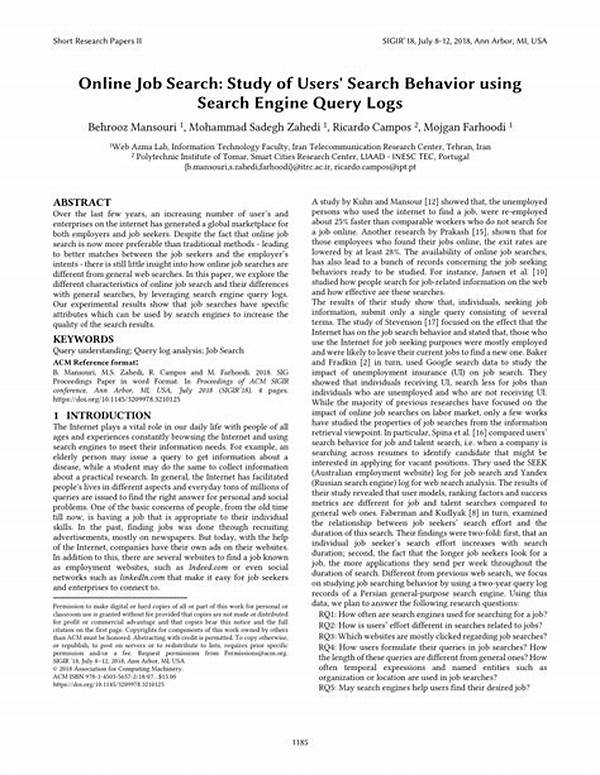Understanding how people search for information online is a fascinating topic that’s been captivating digital researchers for years. This exploration dives into the intricate world of search query behavior comparison study, simplifying complex patterns, trends, and user preferences. Here, we’ll break down what we know about how different types of users interact with search engines, the quirks of their querying habits, and the implications of these behaviors on the digital landscape.
Read Now : Transformative Rap Artist Collaborations
Unveiling the Patterns
When we talk about the search query behavior comparison study, we’re diving into the nitty-gritty of how different folks use search engines. Some people are precise and to-the-point, typing in exactly what they need, barely glancing down the list of results because they know precisely what they’re after. Then there are the more laid-back searchers. They type in a query that’s about as vague as a magic eight-ball prediction, and they’re prepared to wade through a gaggle of results until they find that one gem that’s just right.
Also, there are the overthinkers. You know the type; they start with one simple question, but after just a few clicks, they’re knee-deep in open tabs, examining every possible angle and answer. It’s like a detective movie montage, but with more caffeine and fewer commercial breaks. The search query behavior comparison study also reveals those who are short on time. Perhaps they quickly fire off a search on their phone while juggling a commute. Every second counts; they need that instant gratification and depend heavily on featured snippets.
Diverse Internet Habits
1. The “Just Browsin’” Types: In a search query behavior comparison study, these folks aren’t truly searching. They’re window shopping for information, casually scrolling through links with no urgency at all.
2. “Picky Clickers”: These users know what they want and won’t settle for less. Every word in their search query matters, making them critical participants in any search query behavior comparison study.
3. “One-Word Wonders”: Some think brevity is the soul of wit in the search world. These folks use single terms hoping to strike gold, embodying a unique facet of the search query behavior comparison study.
4. “Curiosity Cats”: Always looking to learn something new, these users dive into rabbit holes, exploring unrelated yet intriguing search results—a vital demographic in the search query behavior comparison study.
5. “Info-Gluttons”: Consume content like they’re at an all-you-can-eat buffet. Their relentless pursuit of knowledge is highlighted in any search query behavior comparison study.
Dive into the Information Pool
The search query behavior comparison study gives us a deep dive into the user’s brain. Consider the varying types of searches: informational, navigational, and transactional. Informational searches are like strolls in the park; users are gathering knowledge, not wanting anything in particular but enjoying the ride. Navigational searches are more like a commute on the morning train—efficient, purpose-driven, and routine.
Transactional searches, meanwhile, involve money chats! Users here know what they want to buy, devouring pages of reviews just to find the best deal. So, whether someone’s looking to self-educate or splurge, the search query behavior comparison study uncovers patterns that marketers dream of. It paints a picture of an ever-evolving internet populace that keeps search engines on their toes, constantly adapting to our ever-changing lingo.
Read Now : Happy And Lively Melodies
The Buzz Behind Keywords
In a world dominated by algorithms, keywords are the golden tickets to search result success. But here’s the kicker: not everyone’s down with the same set of words. It’s like the internet’s exclusive slang club. Keywords are the secret handshake of the digital world, and the search query behavior comparison study gives us a front-row seat to this virtual dance party where not everyone hears the same beat.
The slang keywords are spiced up with abbreviations and hashtag trends that dominate social media platforms. It’s a constant battle between those who type formally and the ones who prefer their abbrevs. The search query behavior comparison study also shines a light on demographic differences. Younger users throw around terms like “fomo” or “lit,” whereas seasoned searchers stick to their tried-and-true vocab.
Societal Sways on Searching
Societal trends also weigh in real heavy on how people search. Trends are where humanity meets the science of digital exploration. Imagine people suddenly panic-searching for bread recipes during a crisis or spam-clicking on tips for self-care. The search query behavior comparison study highlights how our digital footprint refuses to be static. It’s a tell-all tale of where collective human curiosity bends and shifts—one viral dance move or meme at a time.
So while fads push people to a particular term today, it’s the underlying motivations that get dissected in a search query behavior comparison study. Some of it’s a hoot, like tracking how holiday seasons boom with gift-centric queries, while others are more telling, shedding light on societal needs and wants.
Unlocking Future Trends
The beauty of the search query behavior comparison study lies in its predictive prowess. While you can’t look into a crystal ball, understanding past behaviors can hint at what’s next. Tech companies are in a rat race to optimize results based on these shifts. Anticipating movements in how folks type and search can lead to devising algorithms that are smarter, adaptive, and even predictive.
Leveraging insights from a search query behavior comparison study could mean unlocking personalization at a whole new level. Imagine search algorithms that know you better than your closest friend, predicting your next query based on past searches sprinkled with a bit of AI magic. It all adds up to revolutionizing the browsing experience, creating a digital landscape that’s not only user-friendly but user-tuned, thanks to the meticulous art and science of the search query behavior comparison study.
